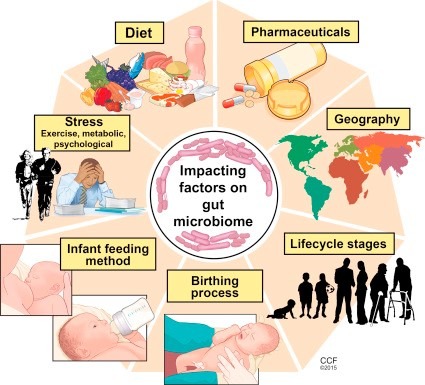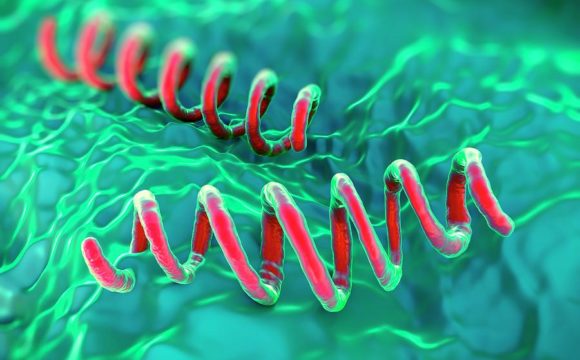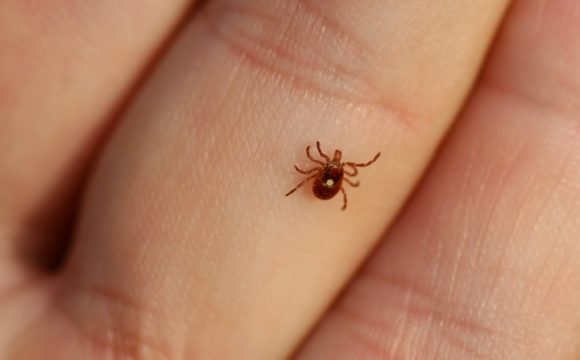Gut flora or gut microbiota is the entire community of microorganisms such as bacteria, viruses, fungi and protozoa, and their combined genetic material living in the human gastrointestinal tract (GIT). Human gut flora comprises commensal as well as pathogenic microorganisms in GIT. It is a complex and dynamic population of microorganisms. Gut Flora provides various benefits to human health. It plays a significant role in enzyme synthesis, nutrients and mineral absorption, synthesis of vitamins and amino acids, especially Vitamin B and K, and the production of short-chain fatty acids. The fermentation by-products produced by gut flora such as propionate, butyrate, and acetate are crucial in gut health. These metabolic products enhance immunity, provide energy to cells, control inflammation, and help in preventing diseases. In our body, gut flora is established within two years after birth. Gut flora gets nourished by the food that we eat or our food habits. Individuals eating fruits and vegetables in their regular diet have different gut flora than those eating junk food regularly.

Source: https://www.sciencedirect.com/topics/medicine-and-dentistry/gut-microbiome
An alteration in gut flora is the result of many factors such as infant feeding methods, stress, surrounding environment, lifestyle, diet, medications, comorbidity etc. A change in diet changes gut flora rapidly.

Source: https://www.sciencedirect.com/topics/medicine-and-dentistry/gut-microbiome
Microbial metabolites produced by the gut flora interact with our immune response and can influence our brain function, brain biochemistry, and behaviour. Variations in gut flora are associated with personality traits. Research shows that alteration in gut flora may affect brain functioning and human behaviour. The gut-brain axis is a communication pathway between the gut and the brain. The gut-brain communication is a bidirectional communication in which gut flora plays a vital role. Vagus nerve or the tenth cranial nerve (CN X) is the longest nerve that connects the brain to the body organs such as the digestive system. Vagus nerve is the key route via which communication between gut flora and brain takes place. Disruptions in gut-brain axis activities are associated with changes in gut flora. Disruption in gut flora may cause neuropsychiatric diseases, such as mood disorders, sleep disorders, and other mental conditions.
Katerina Johnson (Department of Experimental Psychology, and microbiome-gut-brain axis researcher) and Kevin Foster (Department of Zoology), the two researchers at the University of Oxford have proposed a research plan to study how microbes living in the gut affect the brain and behaviour. Research has shown gut bacteria (especially, lactobacillus and Bifidobacterium) can impact human behaviour such as social behaviour, anxiety, stress, and depression.
One theory says that gut microbiomes manipulate our behaviour for their growth. They change our behaviour in such a way to make us more social to increase their chances to get transmitted to new hosts. It is interesting to study that gut microbiomes can produce chemicals similar to the brain’s neurotransmitters or precursors.
In a recent study, Katerina assessed gut microbiome data received from more than 600 individuals. The data was analyzed based on the information about the types of microorganisms present in the gut, information about health and lifestyle, personality, behaviour, and socio-demographics. The analysis showed that individuals with more gut microbiome diversity have a greater social network. It was noticed that certain types of bacteria were found in a large number in the gut flora of social people, while similar types of bacteria found in fewer numbers in individuals with autism. The type of bacteria found in large numbers in individuals with autism was present in fewer numbers in social individuals.
Our food choices could affect our social behaviour as they are causing a direct impact on gut flora and gut-brain activity. For example, mood disorders associated with inflammatory bowel diseases and irritable bowel syndrome are co-related to disruption in gut flora. Further research on gut flora and their direct effects will enable the scientist to design and develop novel microbiome-based therapies to treat neuropsychiatric diseases including behavioural disorders. According to Katerina Johnson and Kevin Foster, a better understanding of the evolution of gut-brain communication may provide deeper insights into the gut flora and their potential benefits in mental health and well-being.
References:
- https://www.the-scientist.com/the-literature/gut-microbiome-composition-linked-to-human-behavior-67566
- https://phys.org/news/2018-04-microbes-gut-affect-brain-behaviour.html
- https://www.sciencenewsforstudents.org/article/belly-bacteria-can-shape-mood-and-behavior
- https://www.sciencedirect.com/topics/medicine-and-dentistry/gut-microbiome
- https://www.intechopen.com/books/behavioral-neuroscience/influence-of-gut-microbiota-on-behavior-and-its-disturbances
- https://www.sciencedirect.com/science/article/pii/S0022395615000655
- https://pubmed.ncbi.nlm.nih.gov/24997043/
- https://theconversation.com/essays-on-health-microbes-arent-the-enemy-theyre-a-big-part-of-who-we-are-79116
- https://www.sciencedirect.com/science/article/pii/B9780128015858000129
- https://www.wikipedia.org/










